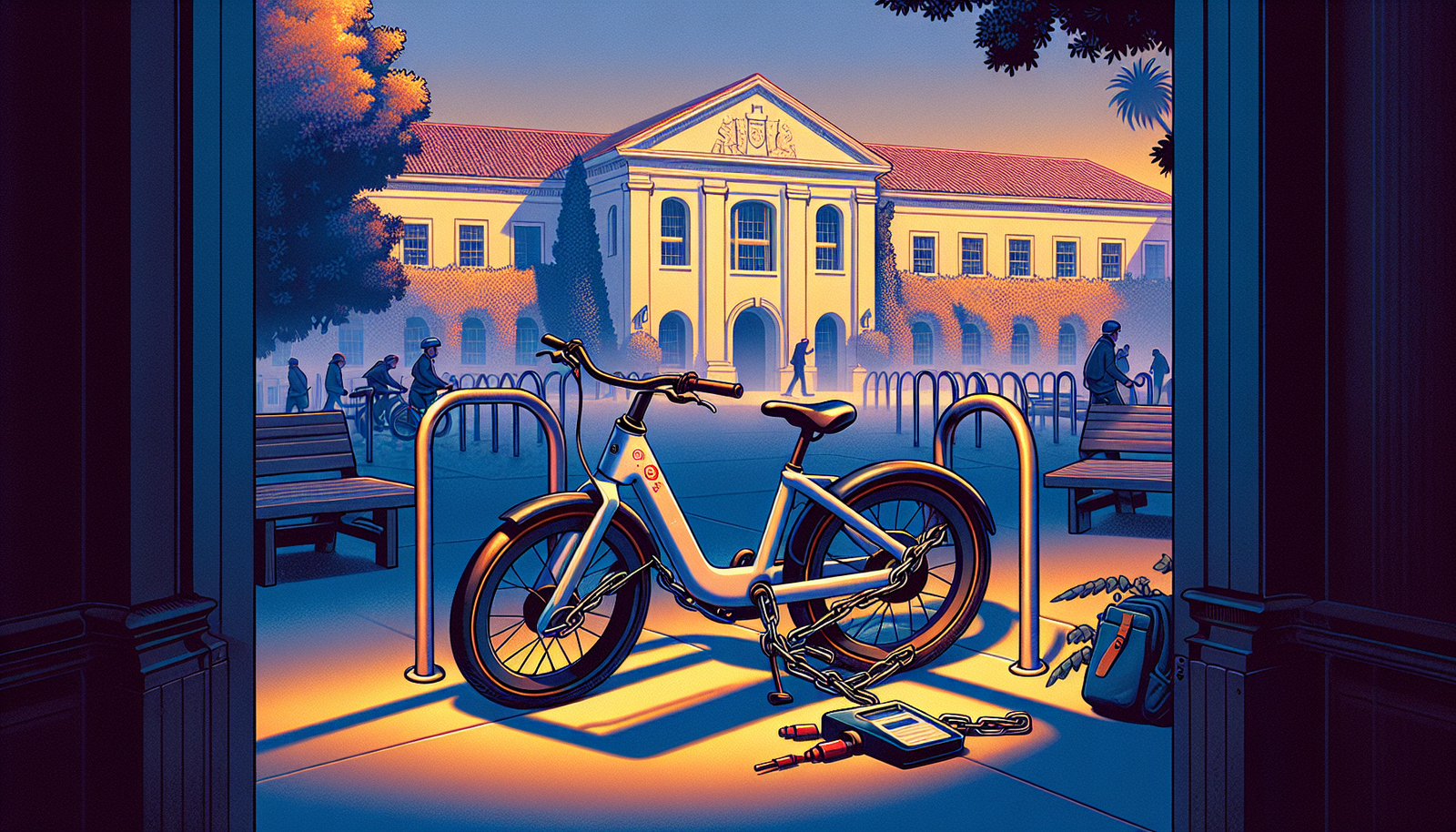Imagine cruising around your college campus on an electric bike, effortlessly gliding past other students and arriving at your classes in record time. It’s a fun and sustainable way to commute, and it’s no wonder that e-bikes are gaining popularity. However, in some California colleges, this convenient mode of transportation has been banned. Despite their benefits, safety concerns and potential conflicts with pedestrians have led to the implementation of this ban. While the decision may disappoint some students, there are still plenty of other colleges and communities where e-bikes are welcomed with open arms.
E-bike Ban Implemented in Some California Colleges
Overview of E-bike Ban
Electric bikes, also known as e-bikes, have been gaining popularity as a sustainable mode of transportation in recent years. However, some colleges in California have recently implemented a ban on e-bikes on their campuses. This article will provide an overview of the ban, explore the reasons behind its implementation, discuss the impact on students and faculty, look at alternative transportation options, and examine the enforcement of the ban. Additionally, we will delve into the controversy surrounding the ban and analyze its presence in other educational institutions. Finally, we will explore the potential for the ban to be reversed or modified, examine the response from the e-bike industry, and discuss the public opinion on the ban.
Reasons for Implementing the Ban
There are several reasons behind the implementation of the e-bike ban in some California colleges. One of the main concerns is safety. E-bikes have the potential to reach higher speeds than traditional bicycles, posing a risk to both the riders and pedestrians on campus. Another reason is the negative impact on campus traffic. With the increasing popularity of e-bikes, the number of riders has risen, leading to congestion and difficulties in navigating around campus. Additionally, the lack of infrastructure for e-bikes, such as designated parking areas and charging stations, has also contributed to the ban. Noise and environmental concerns, conflicts with pedestrians, and inconsistent regulations and policies have further reinforced the decision to implement the ban.

Impact on Students and Faculty
The e-bike ban has had various impacts on students and faculty in California colleges. One of the major difficulties faced by students is in commuting to and from campus. Without their e-bikes, students may have to resort to less convenient and time-consuming modes of transportation. The ban also affects the accessibility and mobility of individuals with disabilities or limited physical capabilities who rely on e-bikes for transportation. Furthermore, the ban imposes a financial burden on students who have invested in e-bikes as their primary means of transportation. It also raises concerns about the environmental impact of prohibiting a sustainable alternative with less impact on the environment than cars. Evaluating the ban’s effectiveness in addressing these concerns will be crucial for future policy decisions.
Alternatives to E-bikes
In light of the e-bike ban, students and faculty affected by the policy will need to consider alternative transportation options. Traditional bicycles remain a viable choice for those who still prefer to cycle on campus. Walking is another option, especially for those who live nearby. Public transportation, such as buses or trains, can provide a convenient and accessible mode of commuting for individuals who have accessible routes nearby. Car sharing and ride-sharing services can also be utilized, especially for individuals who prefer the convenience and flexibility of private transportation. Additionally, e-scooters and other non-e-bike options may serve as alternative means of transportation on campuses.

Enforcement of the Ban
To enforce the e-bike ban, colleges have employed security personnel and campus police to monitor and regulate the use of e-bikes on their premises. Penalties and consequences, such as fines or warnings, have been established for individuals who violate the ban. Monitoring and surveillance techniques, including CCTV cameras and regular patrols, are employed to enhance the effectiveness of enforcement. However, there are challenges in enforcing the ban effectively due to the large size of some campuses and limited resources available to monitor the entire area.
Controversy Surrounding the Ban
The e-bike ban has sparked considerable controversy among students, faculty, and the public. Arguments against the ban emphasize the freedom of choice and the potential for e-bikes to reduce traffic congestion and promote sustainability. On the other hand, arguments in support of the ban highlight safety concerns and the need for consistent regulations and policies. Legal challenges have also arisen, with individuals questioning the legality and justification of the ban. Petitions and protests have been organized to voice opposition to the ban, and media coverage has drawn public attention to the issue.

E-bike Ban in Other Educational Institutions
The e-bike ban is not limited to California colleges. Similar bans have been implemented in other states, albeit to varying degrees. Comparisons can be drawn between the bans in California colleges and those in other educational institutions to identify common concerns and approaches. Additionally, policies and regulations in international colleges offer insights into alternative approaches to managing e-bike usage on campuses.
Potential Reversal or Modification of the Ban
The e-bike ban in California colleges may not be permanent. Discussions and negotiations are underway to reassess the ban and address the concerns raised by students and faculty. The influence of public feedback and the results of evaluations on the ban’s impact will play a crucial role in determining whether the ban can be reversed or modified. Policy revisions and adaptations to changing technologies may be implemented to accommodate the needs of the campus community.

Response from E-bike Industry
The e-bike industry has responded to the ban by highlighting the advantages and benefits of e-bikes as a mode of transportation. They stress the sustainability and environmental impact of e-bikes compared to cars. The industry also advocates for the development of infrastructure to support e-bikes on campuses, such as dedicated parking areas and charging stations. Assistance programs available for purchasing e-bikes have been promoted as a means to alleviate the financial burden on students.
Public Opinion on the Ban
Public opinion on the e-bike ban in California colleges varies. Supporters of the ban appreciate the focus on safety and the need for consistent regulations. Others, however, view the ban as unnecessarily restrictive and argue for the freedom to choose their preferred mode of transportation. The ban has generated public discussions and highlighted the ongoing debate regarding the role of e-bikes in promoting sustainable transportation.
In conclusion, the e-bike ban implemented in some California colleges has sparked a range of responses and considerations. The ban’s impact on students and faculty, along with the alternatives available, enforcement measures, controversy, and possible reversal or modification, have significant implications for campus communities. Evaluating the ban’s effectiveness and accommodating the needs and concerns of stakeholders will be crucial in shaping e-bike policies moving forward.


